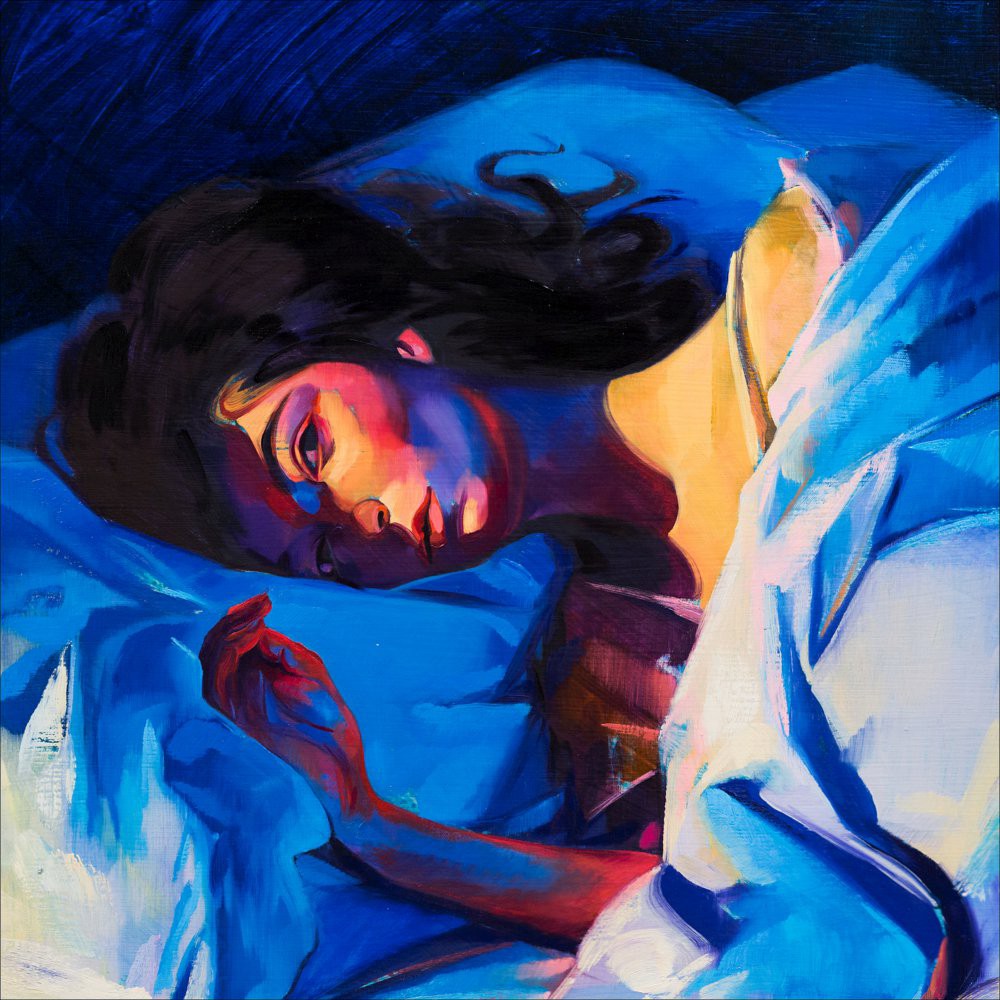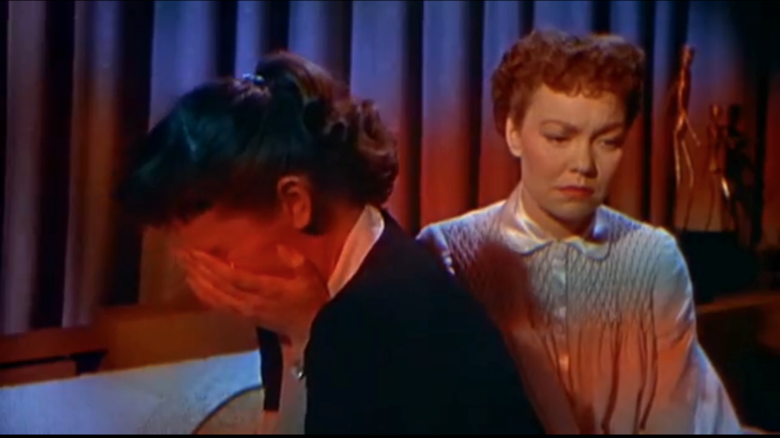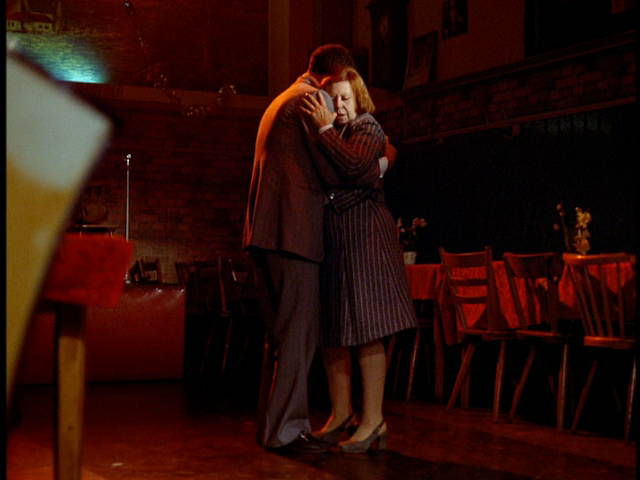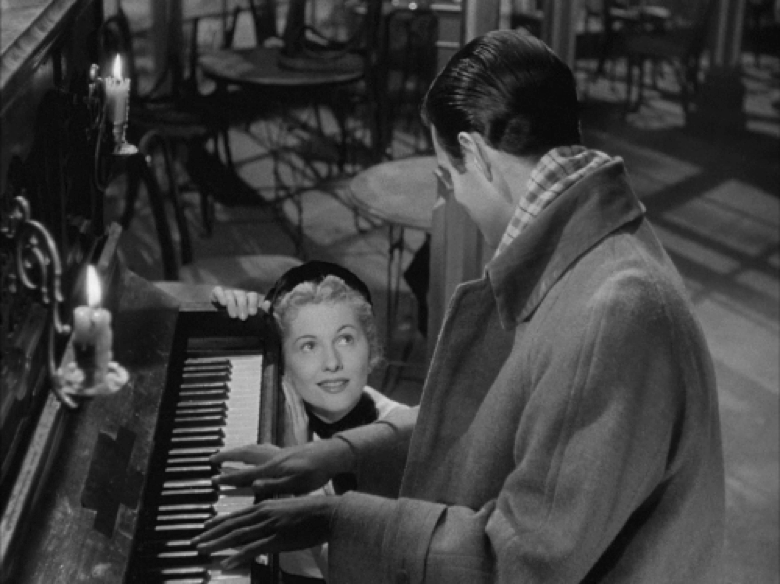Melodrama On Loop
Lorde’s new album is carefully plotted surprise, and it gets you every time.

“Melodrama offers the hope that it may not be too late.” — Linda Williams, “Melodrama Revised” (1998)
“Go back and tell it” — Lorde, “Hard Feelings / Loveless” (2017)
Exactly halfway into Lorde’s Melodrama is the tellingly titled “Hard Feelings / Loveless” — a pivot point in the album further marked by the slash that divides the track’s two parts. The song is, as far as I can tell, no one’s favorite. It’s relatively understated and uneven; the longest song on the album by nearly two minutes. Yet if Melodrama is, as Lorde has described it, a kind of concept album about the experience of a single house party, then its midpoint track is doing some heavy narrative lifting. It dramatizes a switch from profound melancholy (“Hard Feelings” functions both colloquially and literally here) to the almost mechanized apathy of “Loveless.” To get the full effect of the song’s oscillation, I’ve been playing it on loop.
Within “Hard Feelings / Loveless” is the eye of the storm: an uncannily and distortingly calm period before the album gradually ramps up to its finale, the utopic “Perfect Places.” After the foreshortened intake of breath that abruptly cuts off “Hard Feelings” and just before the electronic heartbeats that open “Loveless,” there’s a few seconds of silence that only retroactively read as a pause rather than a conclusion. Like most of the songs on Melodrama, it’s a reminder of Lorde’s songwriting asymmetry, its pop star appeal oriented around strangeness. One might say that “Hard Feelings / Loveless” doesn’t quite belong, but that would be echoing the organizing logic of Melodrama.
In his foundational study The Melodramatic Imagination: Balzac, Henry James, Melodrama, and the Mode of Excess (1976), literary scholar Peter Brooks lays out what is now a well observed definition of the genre (or, as Brooks puts it more loosely, “mode”). Melodramas posit an ethical belief system of the post-sacred modern era, where a “moral occult” of good versus evil is dramatized within the realm of the everyday. It’s a realist genre where the sensational and sentimental — the excessive and the melodramatic — help us see what’s at stake in ordinary life. It’s a capacious genre, fitting both the prosaic and the exaggerated. Most often, melodramas conclude with a “reveal,” a revelation or recognition of some moral truth. And that’s when you cry.

The stuff of melodrama is built upon the history of American theatre, which, today, implies Hollywood cinema: family and romance, breakups and betrayal, violence and horror. Lorde’s Melodrama might be a bit of everything above, thrown into the manic temporality of a house party. As she said to the New York Times: “With a party, there’s that moment where a great song comes on and you’re ecstatic […] and then there’s that moment later on where you’re alone in the bathroom, looking in the mirror, you don’t think you look good, and you start feeling horrible.” Parties are a capacious genre as well.
When I think of Melodrama, I don’t think Taylor Swift’s 1989 (2014) or Carly Rae Jepsen’s E•MO•TION (2015) — both arguably breakup albums of a sort — so much as Harmony Korine’s Spring Breakers (2013). Lorde’s and Korine’s narratives chime together; the euphoria of the party before the solo depression that follows. Even the acoustic renditions of Britney Spears’s “Everytime” that punctures Korine’s film like a kind of chorus are modeled in Melodrama’s reprises of “Sober” and “Liability.” It wasn’t until Lorde’s album that I had even considered Spring Breakers to be a melodrama. But the excess, the rapture, the female tears, the overlapping intimacies, the moral occult, even the threatening hierarchy of privilege. It’s all there.
They even share gestures — perhaps the crucial element of melodrama, per Brooks. The gesture of Melodrama is the sway, as it carefully shifts between highs and lows, the everyday and the excessive, love and violence. The uncertainty of what marks their difference is mirrored in “Liability,” where Lorde merges her lover with herself: “We slow dance in the living room, but all that a stranger would see / is one girl swaying alone, stroking her cheek.”

The most devastating moment in “Hard Feelings” occurs in its ambivalent final verse, when Lorde sings, “But I still remember everything, how we’d drift buying groceries, / how you’d dance for me,” where the strong break occurs after the grammatical break following “groceries,” but the actual lyrical dissonance occurs between “drift” and “dance for me.” Buying groceries punctuates the classically romantic, taking its place. Such melodramatic drift and displacement occurs throughout the album in prosaic places, from when “I stumbled on a secret power / I’ll find a way to be without you, babe” in “Writer in the Dark” to the piling cadences in “The Louvre” of “Nothing wrong with it / Supernatural / Just move in close to me, closer, you’ll feel it coasting.”

Like her Pure Heroine before it, the synesthete’s second album is self-consciously cinematic. The music has already been described in terms of its potential soundtrack functionality as well as its “passages of semi-incidental music,” but its filmic qualities don’t stop at the atmospheric. The very language of Melodrama comes from the movies. Even Lorde’s descriptions of songwriting appear as Platonic visual configurations: “From the moment I start something, I can see the finished song, even if it’s far-off and foggy […] It’s about getting the actual thing to sound like what I’ve been seeing.” The “actual things” on this album aspire to the mystically imagined, though their manifestations as individual jagged songs suggest that the “far-off and foggy” always remains somewhat so. Melodrama is always a little bit aspirational, if not outright impossible.
One term frequently used to describe Lorde’s music is “fluorescent” — a word that is featured in what is perhaps the most explicitly film-driven track, “Supercut.” Like “Royals” (her biggest hit to date) and its reference to “driving Cadillacs in our dreams,” “Supercut” is cinematic in its reliance on car culture. In the song, Lorde alternates between the driving beats of “In your car, the radio up” and the protracted release of “So I fall / into continents and cars.” All the while, the chorus (“But it’s just a supercut of us / Supercut of us”) toggles the song between the jolting rhythms of florescent supercut fantasies and the inevitable letdown of the falling. This frenzy reverberates in Lorde’s voice as well, which includes percussive effects such as the moan, the growl, and the whine in “Supercut.”
In other songs, her delivery could be described as drunker, or close to crying. The faux brattiness of Pure Heroine has evolved into the vigilant enunciations in Melodrama. She syncopates “I overthink your / p-punctuation use / Not my fault / just a thing / that my mind do” in “The Louvre” — drawing out “overthink” while popping her p’s with the attentiveness of a lover. Always, however, in her voice there sounds adoration. Lorde has described her relationship to pop music as one of reverence, and Melodrama is as much a love letter to that genre as it is to an ex-lover. In interviews, she’s cited Phil Collins, Don Henley, Paul Simon, David Bowie, Kate Bush, Joni Mitchell, and Robyn. It’s a formidable list and, despite the singularity of each artist, their influences can be individually traced in Melodrama. From the Bush-inspired punchiness in Lorde’s climactic notes to Henley’s syncopated punctuation in “Hard Feelings,” which, after the “slash” that transitions into the second half, introduces “Loveless” with a Collins drum sample. I would add Annie Lennox to the mix — the way she stretches a phrase, the way her verses wane.
Melodrama ends, perhaps appropriately, with utopia. And if it sounds anything like “Perfect Places” — the album’s final track and third single — then heaven is hip-hop beats with ’80s pop ballad vocals and a lot of piano.

Narrative is crucial to melodrama — Carl Wilson writes, “Melodrama contains a lot more life experience and more craft, with songs that teem with dramatic scenarios and storytelling.” Like Wilson, I think it’s probably going to be the best pop album of the year. I think it’s perfect. But what does Melodrama finally dramatize? The house party, the decades-long history of Anglophone pop music, the aftermath of getting your heart broken for the first time, the struggle between good and evil followed by the revelation of a moral truth?
Part of its transcendence lies in its impossibility; I’m not sure what story it tells exactly. The structure of Melodrama is so conspicuous, yet I have to switch continuously between “Sober” and “Sober II (Melodrama),” or “Liability” and “Liability (Reprise),” just to remind myself that these tracks have anything to do with one another. The latter are ghostly reenactments of the former that end up taking us somewhere else entirely. It’s carefully plotted surprise, and it gets you every time. The moral occult here is both palpable and unidentifiable, and never straightforward. Melodrama rarely is.
Jane Hu is a writer and grad student living in Oakland.
